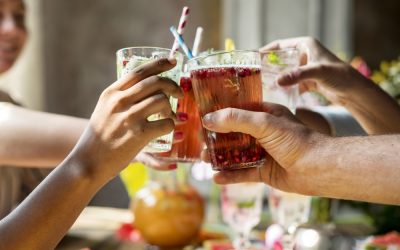Binge Drinking
Binge drinking can quickly spin out of control despite best efforts to drink in moderation or stay sober. If you’re struggling to cut yourself off after a couple of drinks, you are not alone. For many, binge drinking isn’t only a matter of self control. There are many factors that influence our relationship with alcohol, including social factors, genetic predispositions, mental health conditions, and beyond. There are many scenarios in which a few drinks with your friends can quickly lead to excessive alcohol consumption, which has both short- and long-term effects on your physical and mental health. Learning how to stop binge drinking is possible, and may involve reshaping your relationship with alcohol by making behavioral changes, setting goals, and seeking effective treatment.

To tackle it, the best first step is to keep alcohol out of your house. One of the best ways to beat weekend binge drinking is to find new ways to spend your time, such as hitting the gym, going to the beach, jogging at the park, or visiting new places. It can help to view binge drinking as a habit loop made of a cue, routine, and reward. When you surround yourself with the same cues that trigger your urge to binge drink—like certain people or settings—it becomes harder to break the loop.
Alcohol Use Disorder
Intuitive eating means eating when you feel hungry and stopping once you are full. It involves giving yourself permission to eat and trusting your body to make good choices around foods. It may seem contradictory that eating regularly is a recommendation for how to stop binge eating, but skipping ways to stop binge drinking meals can leave your body desperate for nutrition and increase the likelihood of overeating. Keeping a food and mood journal that tracks what you eat and how you feel can be an effective tool. It can help identify potential emotional and food triggers and promote healthier eating habits.
- Additionally, try to eat slowly and enjoy food to promote healthy eating behaviors.
- But I hope that, after nearly two years alcohol free, and wise to the lies us women are sold, if I do, I will have at least learned not to binge.
- The more drinks you have, the more your pre-frontal cortex is thinned, impacting cognitive, emotional, and social functioning.
Peer pressure is one of the most common reasons why people overdrink, especially when they’re young or inexperienced drinkers. You can also write down how you were feeling before you had the drinks plus where you were when you drank to determine if there is a pattern. Secondly, you may also be less likely to drink more if you are full from eating your food. Fiellin says it’s important to note that there is the same amount of alcohol in a 12-ounce bottle of beer, a 5-ounce glass of wine, and a 1.5 ounce shot of distilled spirits. Be careful to follow these guidelines when consuming alcohol, since larger mugs of beer, heavy pours of wine, and mixed drinks might actually be more than one drink. Koob says he likes to recommend an intuitive approach to drinking moderately.
Keep a Drink Journal
If you’ve recently acknowledged that alcohol consumption has become a part of who you are, don’t wait to take action. The effects of excessive alcohol consumption — even when used only socially — may cause permanent damage or impairment to your brain and body, and can even result in death. Sometimes, alcohol dependency can reach a point where attempts at self-treatment https://ecosoberhouse.com/ are simply impractical and ineffective. As mentioned above, long-term alcoholics are likely to experience potentially life-threatening withdrawal symptoms as a result of abrupt abstinence. Symptoms of withdrawal may include seizures, hallucinations, or death as a result of delirium tremens. List why you want to avoid binge drinking and keep it close to you.
- Align your goals to what you’d like to achieve with regards to your relationship with alcohol and your image of your ideal self.
- Even older adults can find it harder to turn down “one more drink” when they’re out having fun with friends.
- However, binge drinking can have serious consequences and any unhealthy patterns of alcohol use can lead to more serious problems.
- It involves giving yourself permission to eat and trusting your body to make good choices around foods.
- Starting each day off with a healthy breakfast might reduce the risk of binge eating later in the day.
- Although people commonly binge drink at ages 18-34, it can happen at any age.
- Binge drinking is a type of excessive drinking, where people consume a large quantity of alcohol in a short period of time.
